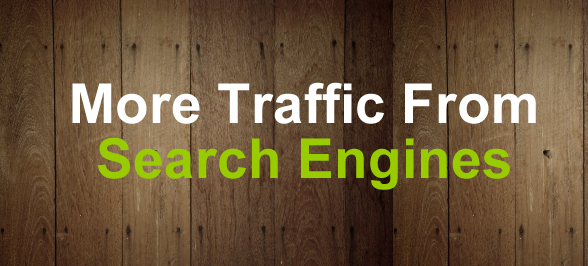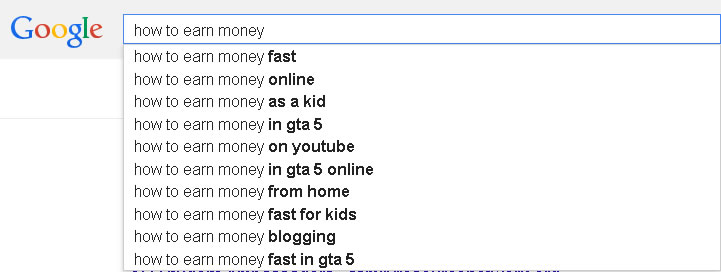Search engines are important source of consistent targeted traffic. In general terms, the more traffic you get from Google and other search engines, the more you hit your target. However, getting this natural traffic is one of the most difficult tasks online.
We know that to increase search engine traffic, backlinks (inbound links) are almost an inevitable requirement. Backlinks (natural dofollow inbound links) are an endorsement or a positive vote in favor of the linked page.
Literally, the more backlinks (votes) your page gets the more its importance and usefulness to the readers. However, not all backlinks carry the same weight; the more the PageRank of the site linking to your blog, the heavier the backlink. That means a backlink from a PageRank 7 site is worth 10 and more links from PageRank 1 sites.
If you are unsure about how to achieve better rankings, you can always check our my friends of Searcharoo, who have a lot of experience on what they are doing and will keep you risk-free. They can take care of your link building, so you do not have to, it’s easy and affordable too.
Now let’s look at backlinks from 3 perspectives;
1 – Dofollow backlinks: These are positive votes that transfer link juice to your blog from the linking site. They have a positive impact on your SEO and can heavily improve your natural traffic.
2 – Nofollow Backlinks: These categories of back links don’t have any impact on your SEO. It’s another way for the site owner (of the site linking to yours) to tell search engines to ignore the links to your blog. The only advantage of this category of links is direct traffic.
NB: Nofollow backlinks can also save your site from Google ranking penalties
3 – Dofollow backlinks from suspicious/Dangerous sites: While we scramble for dofollow backlinks, it’s negative to have such links from sites that are considered dangerous by Google.
Here are the cases Google may consider any site suspicious or dangerous;
- When there is a sudden and massive growth in backlinks
- When the site gets links from irrelevant content
- When the backlinks to the site are keyword rich
- When the site has massive do-follow outbound links. Google may think the site is selling links
- When the site has keyword stuffed contents
- When the site has massive inbound links from sites that have been penalized by Google
NB: Avoid dofollow links from dangerous sites. You can still get more traffic from search engines without be so worried about backlinks.
NB: Check out this post as I show you how to deal with these dangerous inbound links using a powerful online SEO tool
How do I improve search engine ranking without backlinks ?
I just established above that dofollow backlinks are a prerequisite to improve search results and get more traffic from Google and other search engines. However, there is an exception to the role. Let’s see how you can position your blog to get natural search traffic without worrying so much about inbound links.
Forget about keyword density
Shockingly, one of the reasons you don’t get more traffic from search engine is your focus on the keyword percentage of your articles. In the days past, this worked.
Having a specific keyword spread within your content was a crucial onpage SEO factor. However, according to recent updates in the SEO industry, Search engines no longer deliver results that have an exact match to the query.
Instead of repeating the same keyword, I recommend using semantically related key phrases. That is using a variety of keywords that are related.
According to Neil Patel, the sheer variety of words is an important factor that can improve your SEO. For instance, let’s say you’re creating a blog post on “writing great headlines” Here are a variety of other keywords that are related:
- “how to craft a killer headline”
- “creating great headlines”
- “writing better headlines”
- “tips for a great opening line”
- “an effective title”
- “the title of your post is important”
- Etc
The longer the content, the better the SEO
How many words do you need in an article to get more organic traffic? There are many schools of thought on this question but experience has taken us to the conclusion that longer articles get a better attention from search engines. The reasons are simple;
- Search engines love in-depth content.
- The longer the content, the higher your chances of attracting natural backlinks
- Long articles help you avoid keyword stuffing
- The longer the article, the higher the possibility of using more semantically related keywords
As a matter of fact, it’s difficult for many bloggers these days to create content of less than 1000 words even if they are paid to do so. Developing your writing skills to be able to properly and effectively cover a subject in a single post is requirements to meet up with challenges in today’s changing SEO and improve organic search traffic.
From keyword to key phrase
Now, here is the most important point to increase organic search engine traffic even without backlinks. The reason is that competition is often low and your content gets generally highly relevant.
People have learned to be more specific in their search queries. Instead of “make money online” searchers want to be more specific with queries like:
- “make money online fast and free”
- “how to make easy money online for free”
- “how to earn money fast for teenagers online”
- “best way for teenagers to earn money”
- “what the best way to earn money online”
- “How to invest and earn money blogging”
- Etc
There may be few people hitting these queries on Google but combining a number of them can mount up to huge traffic to your blog.
Google suggest (Google’s auto-complete function) is a great tool to help you come up with long tail key phrases from one or two words keyword. These suggestions are generated based on the most frequently searched terms. Let’s see this example from the keyword “how to make money”
Look at that! This can help you take a short and highly competitive keyword to a long tail low competition key phrase.
Don’t forget image optimization
You can optimize your image for better search engine ranking. There are 2 properties you need to consider when optimizing your images for search engine visibility;
1 – Alt text: Because search engines can’t read images, you need to use alt tags to help describe your image. This is simply the text that the search engine uses to understand images. To include it, you simply add alt="this is your alt text" to your image tag. Here’s an example:
<img src=”increase-search-engine.jpg” alt=”longTail Keyword here” />
Using your longtail keyword as image alt text is an important SEO optimization practice. This tells search engines that you have added relevant media component to your article. Of course, the image should be relevant to the topic discussed
2 – Image file size: You know your page load time is an important ranking factor right? That means heavy files will slow down your page speed, creating a negative impact on search ranking. I recommend using an image size optimization tool like Smushit.com to cleanup your images before use.
Bottom line …
If you want to increase search engine ranking and pull more targeted, more converting natural traffic, you have to;
- Create epic linkable and sharable content
- Use semantically related keywords
- Go in for long tail key phrases with low competition
- Optimize your images
Let me hear from you …
Do you care about increasing search engine traffic? Do you do keyword research before creating your contents? Share your thoughts with us in the comment box



Comments are closed.